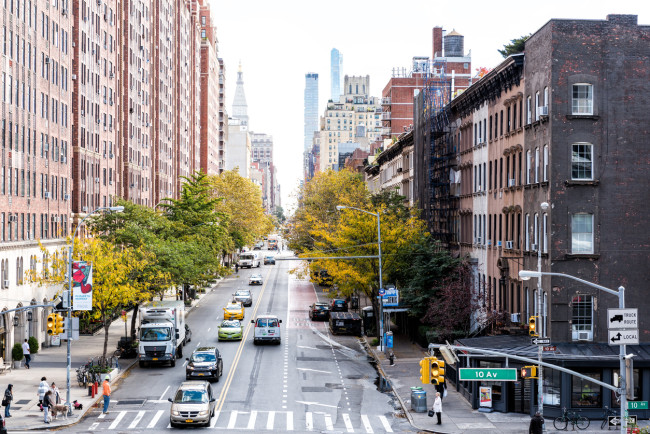How to quiet a noisy neighbor in a co-op or condo

iStock
I own my apartment and my noisy neighbor is driving me nuts. What can I do to make this stop?
New York doesn't have to be the city that never sleeps. Noisy neighbors can come in lots of different forms—loud walkers and loud talkers, party animals and Jimi Hendrix wannabes—but there are a handful of practical solutions that are common to them all.
Assuming that you've had no luck talking to your neighbor, there are two main areas to explore, according to attorney Steve Wagner, a partner at the firm Wagner Berkow with decades of experience representing apartment owners and co-op and condo boards.
"One is what do you do through lawyers," he says. "The other is what do you do practically."
Practical measures and legal prep
A first step is to start tracking when the noise is happening. Keeping a calendar posted in your kitchen so you don't have to go digging it out every time your neighbor fires up her floor-to-ceiling guitar amp is one trick Wagner suggests to clients. Another thing that can help build your case is talking to other neighbors to see if they're affected. If the issue is your upstairs neighbor practicing a clog-dancing routine every Tuesday night like clockwork, odds are your next-door neighbors aren't going to care. But if it's booming bass from that same neighbor's side gig as a techno producer, you may have some allies, and whichever route you take next, there's strength in numbers.
Before suing your building and/or your neighbor, you're also going to need some proof of the problem beyond your jotted notes. That means hiring an expert to measure the sound levels over time. And, Wagner says, "Getting an expert is going to be expensive."
"The test can cost thousands of dollars, and the testimony of an expert can cost thousands of dollars," he says. "That's not to mention the legal fess, which are also thousands of dollars."
So before going to court, you can try to convince your co-op or condo board to take action for you, on the basis that the neighbor is violating the proprietary lease or the house rules. You're going to need to go to the board armed with evidence, so that still means hiring sound consultants.
You might also benefit from doing a visual inspection of your apartment. Wagner explains that often there are holes between apartments around pipes or risers that allow sound to travel through. Stopping the sound could be as simple as covering these with soundproofing material.
Even if the area is properly soundproofed for the most part, if there's a hole, "It makes the rest of the soundproofing ineffective," Wagner says.
Also, buildings often require that residents cover 80 percent of their apartments' floors with carpeting or rugs. The absence of floor coverings upstairs may also be what ails you, in which case the board could step in. To figure any of this out, you and/or your lawyer are going to need to consult the building's rules. If you or your neighbor have renovated recently, you may also want to look at the alteration agreement.
Wagner recalls the case of a woman who, in the course of renovating her apartment, removed all the soundproofing material in her floor, making life hell for the downstairs neighbor. The terms of her agreement ultimately meant she had to pay both the building and her neighbor, for whom the noise was so bad the apartment became uninhabitable.
Wagner says to keep in mind that, when it comes to neighbor disputes, both sides tend to dig in, and given the expense involved, you should consider just paying for soundproofing yourself.
"But most people don't want to lower their own ceiling for soundproofing," he says. "And very often you won't find someone willing to pay to improve their neighbor's apartment even if it's to their own benefit."
Making the noisemaker pay
Then you have lawsuits. There is some dispute in the courts over whether the building must have a specific noise rule beyond the city noise code for one to be able to sue the noisemaker for creating a nuisance. To address this, Wagner suggests that co-op or condo boards create specific house rules governing noise levels, using the noise code for reference.
"In more than one instance we've provided for that in the rules, so that if the person being disturbed tests and if after a trial it's proven that the noise was unreasonable that the person making the noise would have to reimburse the person who's being disturbed for the cost of testing," Wagner says.
Here again, you'll want to know what the rules are before settling on a legal strategy.
Taking it to court
Another route that's becoming more common for neighbor nuisance cases in New York apartment buildings, according to Wagner, is suing not only the neighbor and the building for violating the noise code, but also demanding that the board take action to address the problem and suing them when they fail to.
"What that does is it allows the collection of legal fee by the person being disturbed," he says.
Finally, in a co-op, you are entitled to a habitable living situation, so you could start withholding your common charges in protest.
"But that's not very effective," Wagner says. "Because you don't want your rent reduced. You want the noise to stop."
New York City real estate attorney Bonnie Reid Berkow is a founding partner of Wagner, Berkow & Brandt with more than 30 years of experience litigating in state and federal courts in New York state, including cases involving breach of contract, fraud and breach of fiduciary duty, in addition to real estate disputes and commercial actions. To submit a question for this column, click here. To ask about a legal consultation, send an email or call (646) 780-7272.
You Might Also Like



























